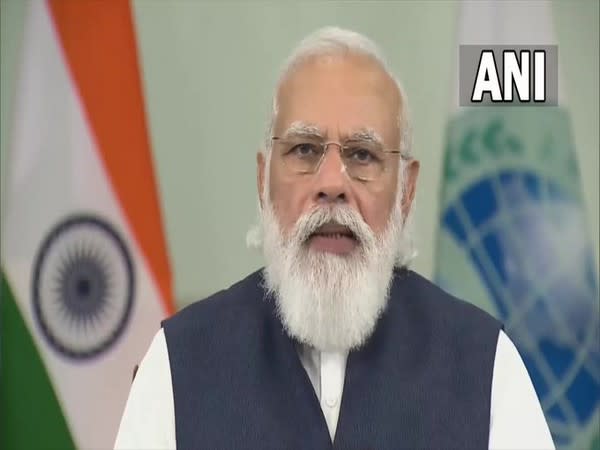Talks on regional security, stability likely during PM Modi's visit to US

New Delhi [India], September 21 (ANI): Amid concerns over regional security and stability due to Taliban takeover of Afghanistan, Prime Minister Narendra Modi is scheduled to visit the United States to attend the first-ever in-person Quad Leaders Summit to be hosted by President Joe Biden on September 24 and will address the annual high-level UN General Assembly session in New York on September 25.
This comes amid the changing political situation in Afghanistan that is threatening the regional stability and PM Modi is likely to discuss Afghanistan, COVID-19, climate change, the Indo Pacific, terrorism to other issues with President Biden.
This will be the first time PM Modi will be visiting the US after President Joe Biden assumed office.
The most important issue on agenda is the changing geopolitics amid the Taliban takeover of Afghanistan. The US and India had invested heavily in Afghanistan. US with the help of its NATO allies assisted Afghanistan to rebuild as several major developmental projects like roads, connectivity, agriculture, education were undertaken. India has construction parliament building and dam in Afghanistan.
On August 15, the Taliban seized control of Afghanistan 20 years after it was removed from power in a US-led military invasion. Four days before the 20th anniversary of the Sept. 11 attacks, the Taliban declared the restoration of their Islamic Emirate and named a new government.
Thus the developments that Afghanistan achieved in these 20 years are back to square one after the Taliban takeover.
PM Modi's visit to the US will have far-reaching effects in the region as Russia and China abstained from voting when Resolution 2593 was passed by the UNSC under the presidency of India on August 30, 2021, demanding that Afghan territory should not be used to threaten or attack any country or to finance terrorist acts.
Meanwhile, the Taliban has put conditions including respecting human rights only if the international community recognises the new caretaker government.
Taliban responded to Ambassador and head of the EU delegation in Afghanistan, Andreas Von Brandt, who rose concerns over human rights violations in the strife-torn country, especially women and girls' right to education and work.
India has urged the world leaders at different forums to adopt a unified approach with regard to the Taliban. For that, External Affairs Minister S Jaishankar is holding several bilateral and multilateral meetings on the sidelines of the UNGA meeting prior to PM Modi's scheduled visit to US.
Earlier, speaking at the Shanghai Cooperation Organization (SCO)-Collective Security Treaty Organization (CSTO) Outreach Summit on Afghanistan, the Prime Minister drew attention to issues related to the developments in Afghanistan, noting that the power change in Afghanistan is not inclusive and has taken place without negotiations.
Stating that the recent developments in Afghanistan will have the greatest impact on neighbouring countries like India, PM Modi said there is a need for regional focus and cooperation on the situation in the country.
The United Nations has asked for a unified approach from the world, and the UN chief Antonio Guterres said that the Taliban's desire for recognition is the UN Security Councils "only leverage" the Security Council's only leverage to press for inclusive government and respect for rights, particularly for women, in Afghanistan.
Despite the Taliban's repeated assurances to the international community and Afghan nationals that they would establish an inclusive government that represents all parts of the Afghan society, neighbouring countries are dealing with massive exodus.
"The Biden-Harris administration has made elevating the Quad a priority, as seen through the first-ever Quad leaders-level engagement in March, which was virtual, and now this summit, which will be in-person," White House spokesperson Jen Psaki said.
Hosting the Quad leaders demonstrates the US administration's "priority of engaging in the Indo-Pacific, including through new multilateral configurations to meet the challenges of the 21st century", she added
Prime Minister, will therefore utilize this diplomatic mission to reinforce regional focus and regional cooperation to deal with the Afghan crisis and the security of the region. (ANI)

 Yahoo Finance
Yahoo Finance 